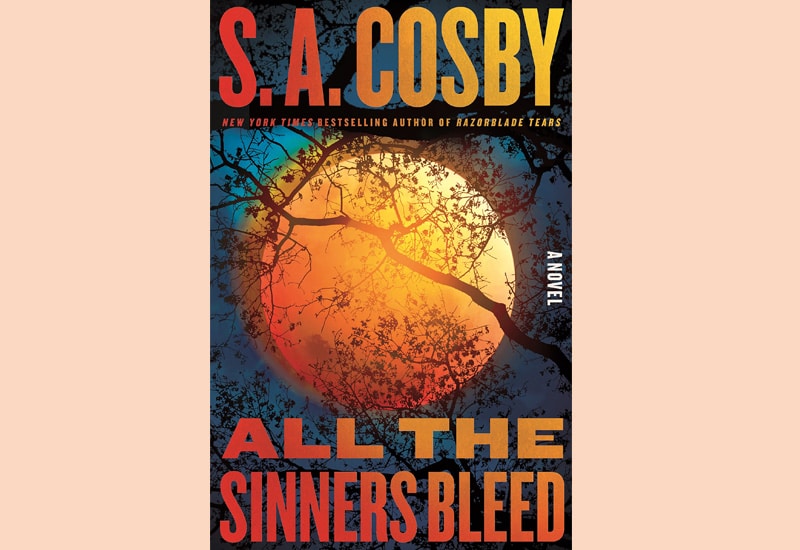Late on in SA Cosby’s Southern gothic thriller, sheriff Titus Crown reflects that, ‘violence begets more violence and all violence is a confession of pain’. There’s plenty of excellent violence in All The Sinners Bleed, plenty of nicely weighted noir-dialogue too; but maybe a few too many confessions of pain for this reader’s liking.
Titus Crown is the first black sheriff of Charon County, Virginia, and consequently finds himself living ‘in a no-man’s-land between people who believed in him, people who hated him because of his skin color, and people who believed he was a traitor to his race.’ This is a heavy burden to bear, but thankfully Titus is also a former football star and FBI agent with a memory of preposterous lucidity, a dead mother whose wisdom echoes in his ears, and a lamentable moment of violence in his past that haunts him – continuously. All these things combine to mean that he is well equipped to deal with the spiralling horrors that begin when his best-friend’s troubled son shoots a beloved high-school geography teacher.
From this auspicious beginning, we get a descent into child abduction and murder, all carried out by wolf-masked serial killers hiding in plain sight. Titus has to find ‘the last wolf’ while managing the racial divisions that threaten to – and eventually do – erupt into violence in Charon.
There is a great deal to enjoy in SA Cosby’s dark and tender evocation of small-town Virginia, in the pacing of a plot that keeps the reader either on edge or close to it for much of the violent ride to its conclusion, and in the dialogue of both Titus and the host of secondary characters that populate the book.
Unfortunately, there are two problems that dampen the book’s momentum and shine. The first, is that the book’s narrator too often veers off into the clunky or overblown. Cosby’s use of the simile leaves a lot to be desired (‘His secret was…[h]anging over his head like a dull sword of Damocles’ or ‘Memories, charged like electrons, ran along the phone line like nerve impulses’), and mostly one wishes he just hadn’t bothered trying to use them. The second, is Titus’ constant references to the violent end of Red DeCrain and the impact that this encounter continues to have on Titus’ mental state. The references to how terrible Titus feels are so incessant that we stop caring – especially when it turns out that what Titus did was barely bad at all.
Ultimately, though, if you can block out the emotional background noise and focus on the action and dialogue, All The Sinners Bleed will reward you with a good time.







Click here to change your cookie preferences